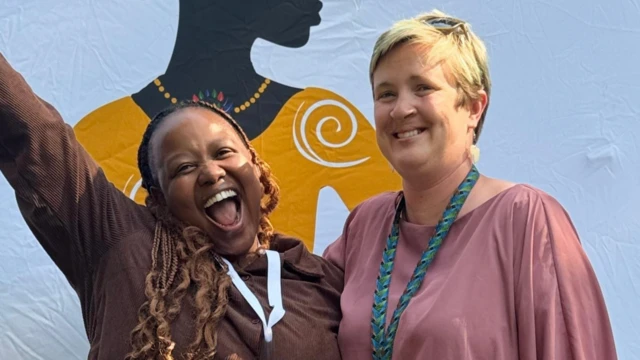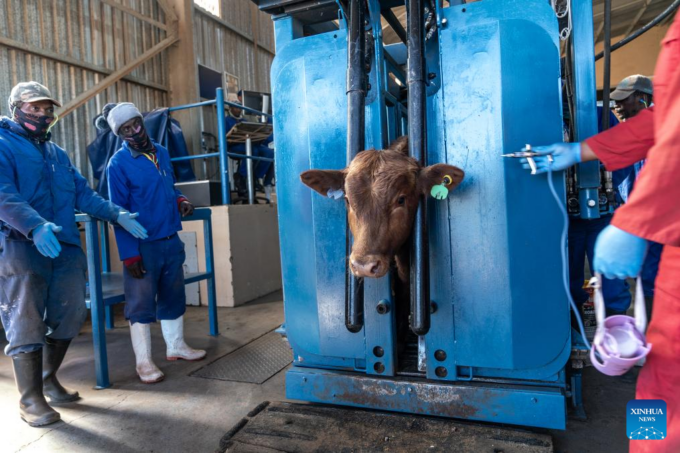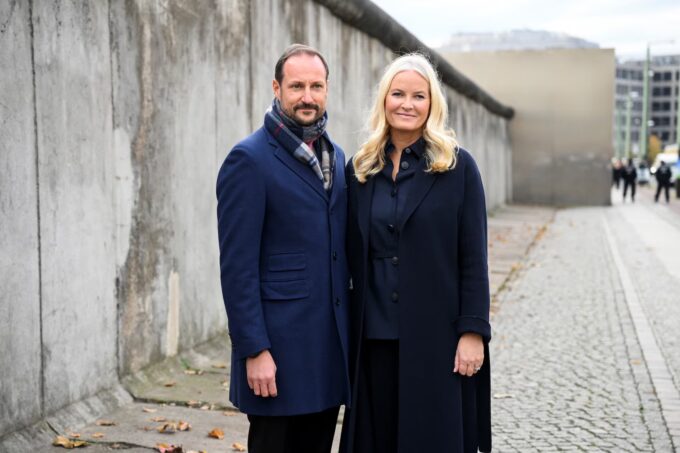In the heart of South Africa, one woman’s grief has transformed into a movement for justice, safety, and empowerment. After losing her 19-year-old pregnant relative to a brutal killing in 2020, Leonora Tima, a development-sector professional from Cape Town, has turned personal tragedy into purposeful innovation. Her creation, Gender Rights in Tech (Grit), is a digital platform designed to help survivors of abuse particularly women, speak out, seek help, and preserve evidence in a society where violence has become heartbreakingly normalized.
The murder of Leonora’s young relative, whose body was dumped along a highway near Cape Town, was not even reported by local media. For Leonora, this silence reflected something deeply disturbing. “Her death wasn’t published by any outlet because the sheer volume of these cases in our country is such that it doesn’t qualify as news,” she said. That normalization of gender-based violence (GBV) became her breaking point—and the beginning of Grit.
Grit represents one of the first AI-driven solutions developed by African women for African women to address the continent’s gender-based violence epidemic. At its center is Zuzi, an empathetic AI chatbot built through community collaboration. Leonora calls it “an African solution co-designed with African communities.” The goal: to give survivors a safe space to share their stories, seek assistance, and gather evidence that could one day hold perpetrators accountable.
Backed by the Mozilla Foundation, Bill & Melinda Gates Foundation, and the Patrick J. McGovern Foundation, Leonora and her team spent months engaging with township communities to understand how women use technology to talk about violence. After interviewing over 800 people, they discovered a critical insight: survivors were eager to speak, but they had lost faith in traditional systems like the police.
“Some women would post about their abuse on Facebook and even tag their abuser,” Leonora recalled, “only to be served with defamation papers.” These painful realities highlighted how the very systems meant to protect victims often silenced them instead.
Determined to build something practical and empowering, Leonora and her small but passionate team created an app centered around three core tools. The first is a panic button—a large circular icon on the home screen. With one tap, it records 20 seconds of audio and alerts a private rapid-response center, where trained operators can contact emergency services or local partners to assist.
The second feature, called “the vault,” provides users with a secure and encrypted space to store critical evidence—photos, screenshots, and voice notes—away from their personal devices. This ensures that evidence of abuse remains safe even if a phone is stolen, destroyed, or seized by an abuser.
In its third and most groundbreaking addition, Zuzi the chatbot offers guidance, information, and comfort. Developed with feedback from women across Cape Town, Zuzi was designed not to sound like a robot or an authority figure but like “a trusted aunt”—someone approachable, warm, and non-judgmental. Users have described finding strength in conversations with Zuzi, using it as a confidential outlet to talk about what they cannot tell others.
Leonora explains that while Grit’s mission is centered on women, the app has unexpectedly become a space for men as well. “We’ve seen men use Zuzi to talk about their anger issues or to seek help as victims of violence,” she said. “People like talking to AI because they don’t feel judged. It’s not human.”
Since its launch, Grit has gained more than 13,000 active users and handled over 10,000 requests for help in a single month. The platform has become a lifeline for many South Africans navigating the trauma of domestic violence and assault in a country where, according to UN Women, seven women are killed every day.
International human rights advocates have taken notice too. Leonora and her team recently showcased Grit at the Feminist Foreign Policy Conference in Paris, where leaders from over 30 countries pledged to make tackling gender-based violence a global priority.
Yet Leonora remains grounded. She acknowledges that AI is not a replacement for human empathy but believes it can bridge a critical gap where support systems fall short. “We need to earn people’s trust. These are communities that are often ignored. We’re asking a lot from people when it comes to sharing data,” she said.
For Leonora Tima, Grit is not just an app—it’s a statement. It’s about giving survivors a voice, restoring dignity, and using technology to rewrite the narrative of fear into one of resilience and hope.
Her message to other African women is clear: “We have the power to create our own solutions. Technology must serve our realities, our communities, and our fight for justice.”
As Grit continues to expand, it stands as a beacon of what can happen when pain turns into purpose and when one woman’s resolve becomes a tool for collective healing across Africa.














Leave a comment